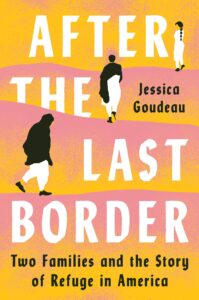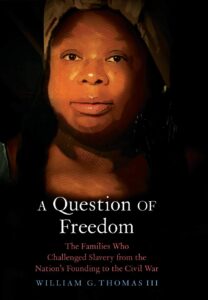Here are the winners of the 2021 J. Anthony Lukas Prize Project Awards.
Today, the Columbia School of Journalism and the Nieman Foundation for Journalism at Harvard announced the 4 winners and 2 finalists of the 2021 J. Anthony Lukas Prize Project Awards, which honors the best American nonfiction writing of the previous year. The Prizes, established in 1998, consist of the J. Anthony Lukas Work-in-Progress Awards, the J. Anthony Lukas Book Prize, and the Mark Lynton History Prize. Previous winners include Kerri K. Greenidge, Alex Kotlowitz, and Jeffrey C. Stewart.
This year, the winners and finalists of the Awards are:
THE J. ANTHONY LUKAS WORK-IN-PROGRESS AWARDS
Emily Dufton, Addiction, Inc
Casey Parks, Diary Of A Misfit
THE J. ANTHONY LUKAS BOOK PRIZE
Jessica Goudeau, After The Last Border
Barton Gellman, Dark Mirror (finalist)
THE MARK LYNTON HISTORY PRIZE
William G. Thomas III, A Question Of Freedom
Martha S. Jones, Vanguard (finalist)
The virtual awards ceremony will take place on Tuesday, May 4, 2021. Below, you’ll find the judges’ remarks on the winning projects. Congrats to all!
*
2021 J. Anthony Lukas Prize Project Awards
THE J. ANTHONY LUKAS WORK-IN-PROGRESS AWARDS
Emily Dufton, Addiction, Inc
Judges’ citation: Addiction Inc. is a rigorously reported and timely look at how the United States’ war on drugs shifted from a federally subsidized treatment model to one that prioritizes criminalization over compassion and revenue over recovery, resulting in a burgeoning business that enriches doctors, scientists, pharmaceutical companies, and politicians, among others. While honoring the investigative journalist’s mantra—“follow the money”—Emily Dufton never loses sight of her story’s human element, offering empathetic portraits of those engaged in the struggle against addiction.
Casey Parks, Diary Of A Misfit
Judges’ citation: Casey Parks’ Diary of a Misfit is a stunning book about her coming of age as a lesbian in the Deep South juxtaposed against the story of a transgender man named Roy Hudgins, who lived his open secret among a community that both protected and ostracized him. What was the real truth of Roy’s life? Was he beloved or reviled? Roy, whose life ended before Parks began to report it, left a legacy of more questions than answers—questions she excavates with tenderness and empathy, drawing on the private journals Roy kept for decades. The author never judges, even when it comes to those who judge her. The result is a brilliant exploration of what it means to be different, to be alive, and to love and be loved.
THE J. ANTHONY LUKAS BOOK PRIZE

Jessica Goudeau, After The Last Border
Judges’ citation: With remarkable detail, lyrical prose, and keen insight, After the Last Border: Two Families and the Story of Refuge in America brings readers inside the world of refugees in America through a narrative that juxtaposes personal experiences with the broad sweep of historical policy. Jessica Goudeau has done an extraordinary job reconstructing the lives of two refugees—one from Myanmar, the other from Syria—in intimate, compassionate portraits that illuminate some of the most urgent issues of our times. After the Last Border is explanatory, inspirational, gifted storytelling, employed in the cause of a great social good.
THE MARK LYNTON HISTORY PRIZE

William G. Thomas III, A Question Of Freedom
Judges’ citation: It begins with a bridge. The opening pages of William G. Thomas III’s astonishing and monumental book, A Question of Freedom, recount his drive to a 2017 religious service at Georgetown University, for which he must first cross the Francis Scott Key Bridge. The service has been convened to force a moral reckoning with ghastly crimes: The enslavement of human beings. The destruction of families. The crushing of souls. Throughout this extraordinary work, Thomas details the court cases brought by slaves to demand their freedom. And he insists that we learn the names of the families—among them, the Queens and the Butlers—whose brave members used the law to require a fledgling nation to live up to its stated ideal of equality.





